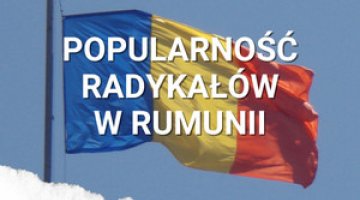Romania is intensifying relations with Turkey
Traian Băsescu and Abdullah Gül, the presidents of Romania and Turkey, signed a declaration of strategic partnership for the two countries on 12 December in Ankara. This declaration emphasises the special nature of Romanian-Turkish relations and is creating a framework for the further enhancement of co-operation in the areas of politics, economy, security, culture and education. Precise actions in the areas of enhanced co-operation are to be defined in a separate executive document, which is expected to focus on the improvement of the conditions of economic co-operation. Romania has also signed strategic partnership agreements with the United States, France, the United Kingdom, Italy, Spain, Poland, Hungary, China, Japan and South Korea.
Commentary
- The declaration made by the presidents is giving rise to a new format of bilateral contacts, which may facilitate the development of co-operation. However, at the present stage, these documents should be treated first of all as a confirmation and willingness to develop Romanian-Turkish relations, which are already very good.
- One of the factors which stimulate the process of building closer relations between Romania and Turkey are the strategic interests of the two countries, which overlap to a great extent. Turkey has been actively supporting Romania’s accession to NATO, and Romania is now offering its strong support to Turkish aspirations for EU membership. The two countries are also engaged in the project of building the missile defence shield. For Romania, the strategic partnership with Turkey has an additional geopolitical benefit: this is supposed to be an element of weakening the Russian-Turkish domination in the Black Sea region. In turn, for Turkey, this is an element of its policy of broader engagement in its immediate neighbourhood and strengthening its position in its dealings with Russia.
- Romania and Turkey have been co-operating closely in a number of regional organisations. However, they differ in their visions for the Black Sea basin. Bucharest is a staunch supporter of ‘internationalisation’ of this region, i.e. increasing engagement from the USA and the EU. It also wants a revision of the Montreux Convention to be considered, which legitimises Turkey’s control of the Bosphorus and Dardanelle Straits. In turn, Turkey does not wish external actors to become more active in this region and wishes to retain control of the Black Sea straits.
- An important sign of establishing closer political relations between Romania and Turkey is their robustly developing economic co-operation. In 2010, Turkey was the fifth largest trade partner for Romania and the first among non-EU member states. However, at the same time, Turkey was ranked only among the top twenty foreign investors in Romania. Bucharest is interested in gaining direct investments from Turkey because it is planning to sell part of the shares in state-controlled energy companies next year (including minority blocks of shares in Transelectrica, Transgaz and Romgaz, and majority stakes in electric energy companies). Closer co-operation with Turkey is also expected to accelerate the implementation of energy projects, including the Southern Gas Corridor or the Constanta-Istanbul electric cable running along the seabed.





